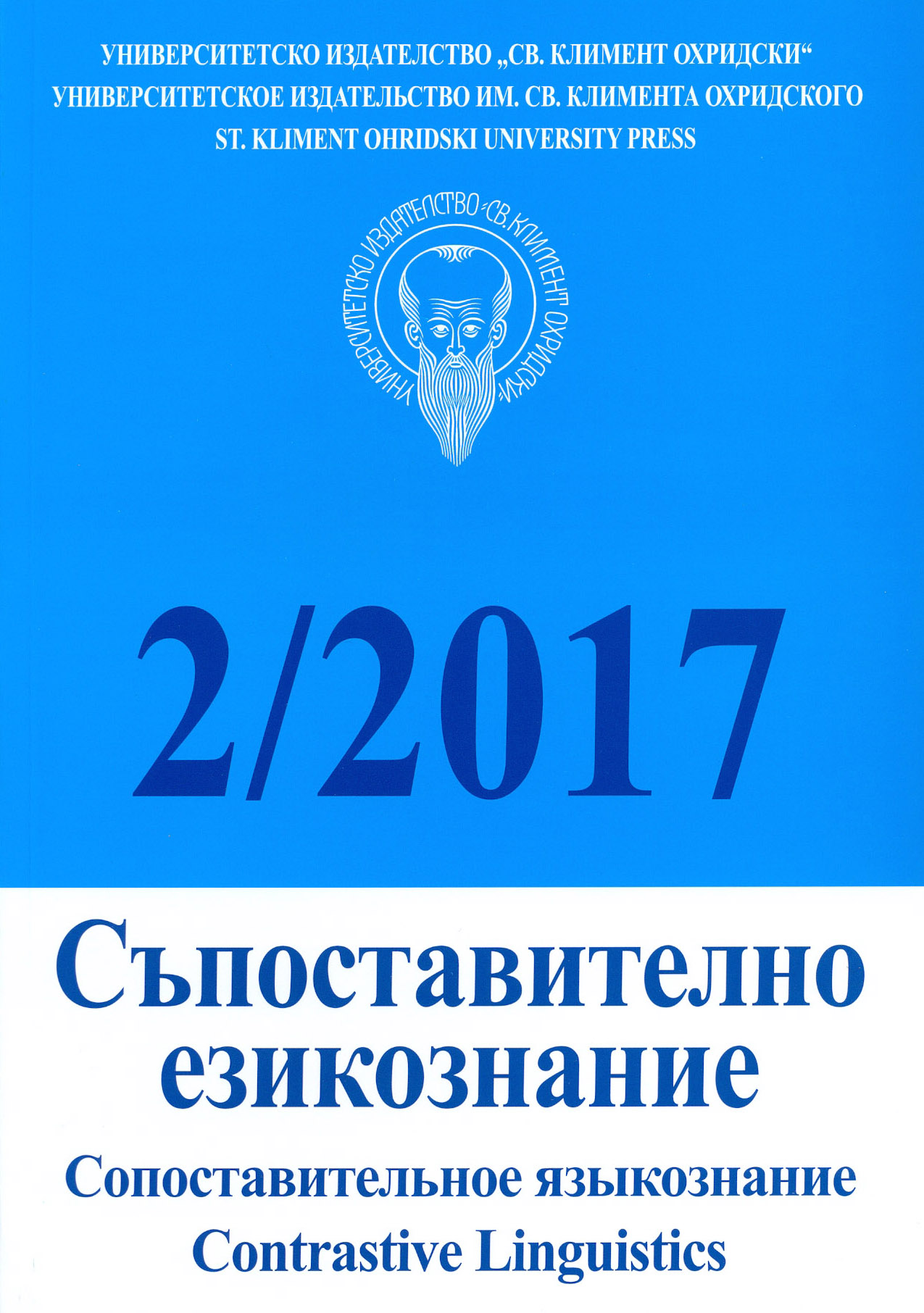Eзиков израз на олфакторните възприятия в балканския ареал и извън него
Linguistics expression of olfactory perceptions in the Balkan area (and beyond)
Author(s): Maya AlexandrovaSubject(s): Language studies, Language and Literature Studies, Theoretical Linguistics, Semantics, South Slavic Languages, Philology
Published by: Софийски университет »Св. Климент Охридски«
Keywords: smell; olfactory perception; classification; semantic nest; origin; development; diversity; borrowings
Summary/Abstract: The article analyses the lexemes denoting smells, first in the Balkan, then in the Slavic, Germanic, Romance, Baltic, Celtic and other languages. The lexemes are classified into groups according to different criteria: by origin in relation to an Indo-European root; by semantics and semantic development; names expressing perception through the senses; mixing of the senses, etc. The results of the study of Indo-European lexemes indicating olfactory perception show that the initial proper Indo-European words for мириша/мириз- ма – *bhrh1g-ro ‘smelling’, *gʷʰreh- ‘breathe, smell’ and h3ed- / h3d- are complemented and extended by lexemes meaning ‘blow’, ‘air, breathe’, ‘exhale’, ‘smoke, smoulder’, ‘feel’, ‘note, notice’, ‘pant, getting hot’, ‘shake’, ‘hit, hurt’ and others. The fact that non-Indo- European languages also have common names for breathe, blow and smell (e.g. the Hamito- Semitic or Turkic-Tatar languages) outlines a linguistic universal.
Journal: Съпоставително езикознание / Сопоставительное языкознание
- Issue Year: 2017
- Issue No: 2
- Page Range: 18-32
- Page Count: 15
- Language: Bulgarian
- Content File-PDF

